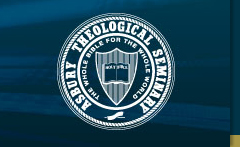Files
Download Full Text (67 KB)
Summary
Required Textbooks (1) The Bible The primary text is the Bible. As a part of your work, feel free to draw on what we might call "formal equivalence" translations. Such versions stick closely to the original wording and sentence structure of the Greek and Hebrew text. Examples include the New Revised Standard Version (NRSV), the Revised Standard Version (RSV), the New American Standard Bible (NASB), the New Jerusalem Bible (NJB), and the New American Bible (NAB). While the King James Version and New King James Version are formal equivalence translations, they sometimes reflect a less original Greek text. For this reason you should not use them as your primary biblical text. Similarly, you should not use a paraphrase (e.g. Living Bible), a translation by a single individual (e.g. The Message), or a "dynamic equivalence" translation for your primary biblical text (e.g. New International Version, New Living Translation, etc.). These versions try to bridge the gap between "our time" and "that time" by reformulating the wording of the original Greek and by drawing on rough parallels in contemporary language. While these kinds of version are excellent in a pastoral context, the price you pay is the illusion that you are actually looking at what the Bible originally said. You loose the opportunity to hear the possibilities of the text itself. It would be best if your copy of the Bible was not overly interpretive (i.e., with extended notes, paragraph headings, etc.). Christians often use such "userfriendly" helps as a crutch. I ask that you wait on consulting these notes until AFTER your own inductive work. You may very well find that you need to correct the notes in your Bible! (2) David L. Thompson, Bible Study That Works (Hereafter: BSTW) Revised edition. (Nappanee, IN: Evangel Press, 1994). (3) Jack D. Kingsbury, Matthew as Story (Philadelphia: Fortress Press, 1988). (4) David R. Bauer, An Annotated Guide to Biblical Resources for Ministry (Hereafter: BRM), (Peabody, MA: Hendrickson, 2003). This is a useful way to familiarize yourself with numerous secondary sources.
Publication Date
January 2004
Publisher
Asbury Theological Seminary
Keywords
ExL, Bible, Summer, Inductive, Study, IBS, Mark, NT510
Language
English

